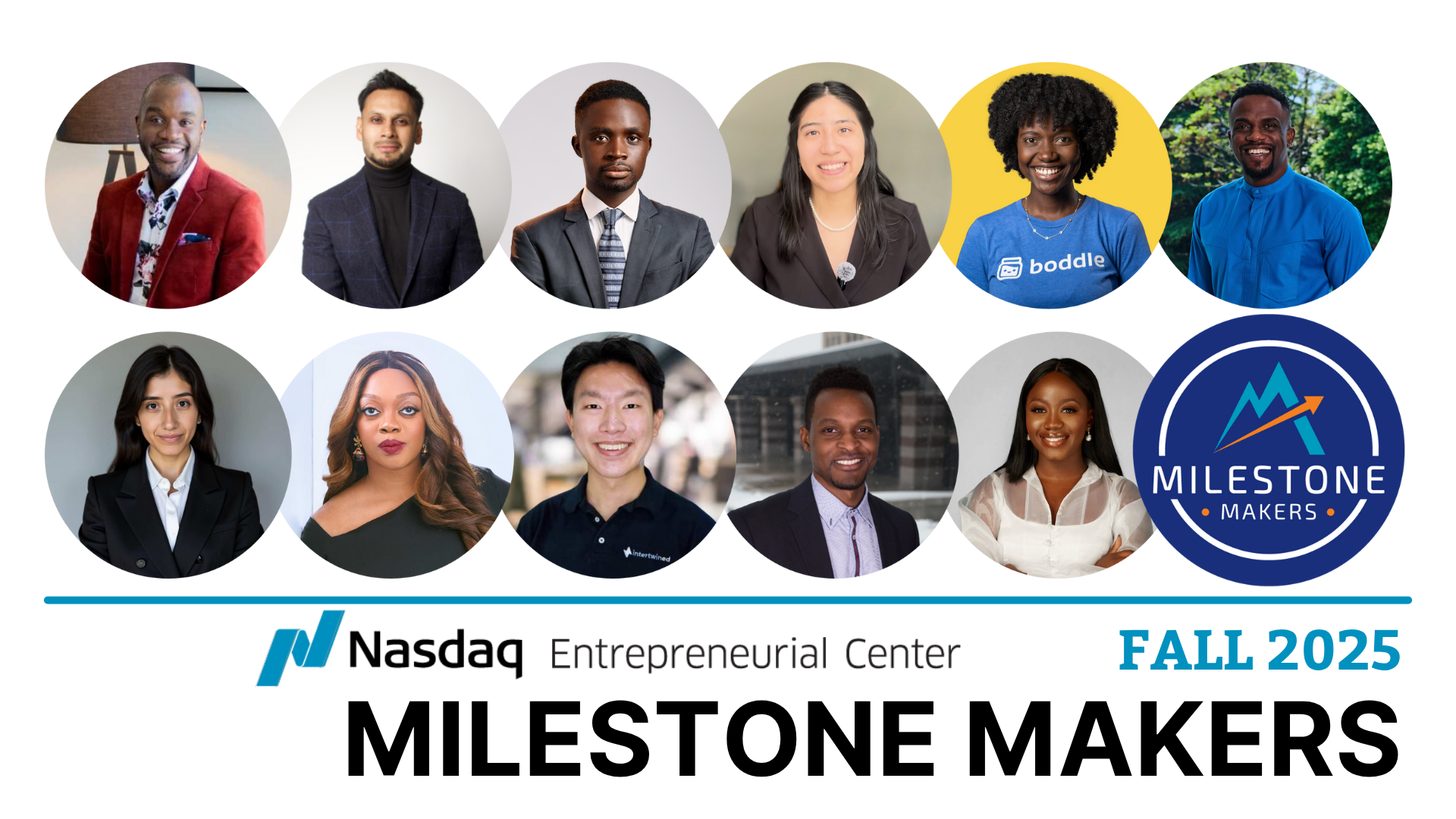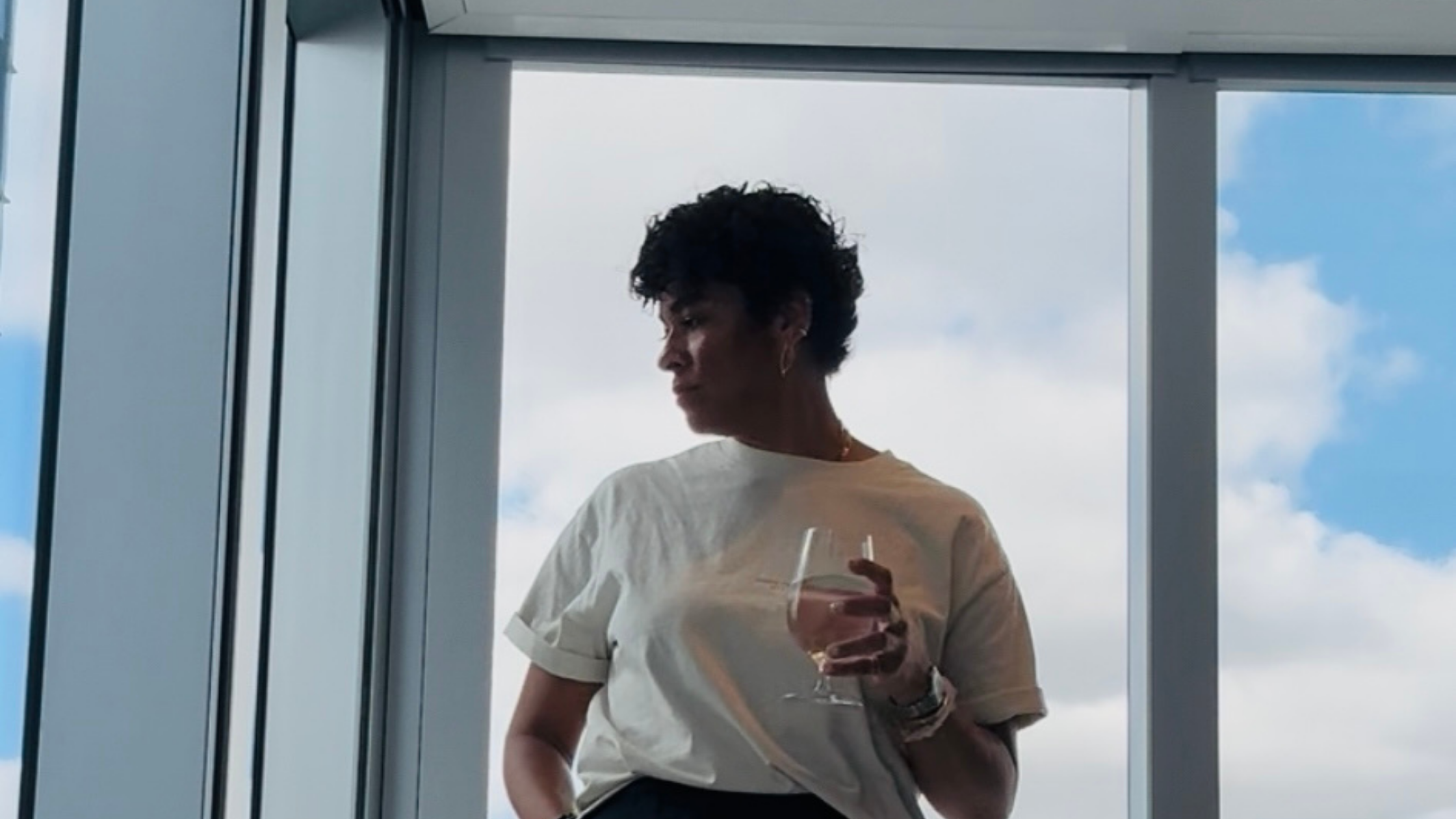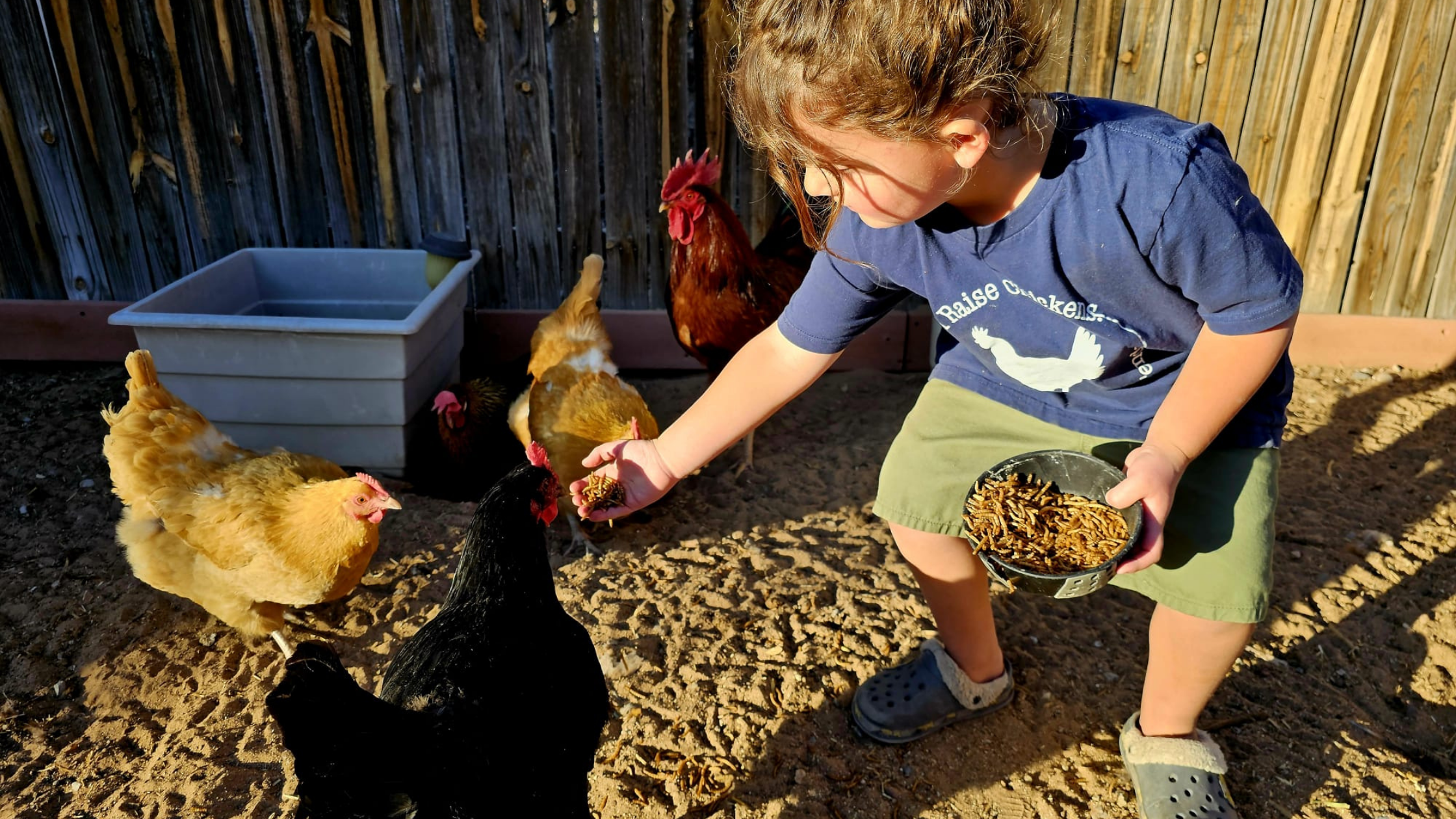Daniella Hunter has seized on a zeitgeist. With more and more growing demand for gluten, grain, and dairy free food on the rise globally — and with the gluten-free market alone projected to be valued at $2 billion by 2019 — Hunter is definitely on to something. She’s built The Real Coconut —a veritable empire of specialty alternative food — snacks, alternative flours, and other gluten-free products that have hit the shelves of Whole Foods and other health-conscious grocers across the country. She’s also passionate about health, sustainability and she’s determined to create only products with sustainable ingredients, working directly with farmers and governments to help make such products affordable and ubiquitous to the everyday consumer. The Nasdaq Entrepreneurial Center sat down with Hunter to catch up on her founder’s story so far.
So what does “entrepreneurship” mean to you?
DH: Entrepreneurship to me means paving a path with new ideas and solutions. It also means approaching an idea with massive creativity and not being afraid to fail before you start. There are people who talk about ideas then there are those who actually do it. The latter is entrepreneurship.
How did your company come to be?
DH: During the process of building our hotel, Sanara Tulum we realized that we would need to build a restaurant to accommodate guests. Although we had carved out space for a restaurant, we had no idea or vision of the concept and it wasn’t until the architects approached us to discuss kitchen design that I realized we needed to develop a menu pretty quickly. With no chef at that time, I thought that the best bet would be to write a menu of what I would want to eat, and as I began this process I started drawing ideas from my personal wellness journey and utilizing recipes from my own kitchen. A couple of years previously, I had created a recipe for Coconut Flour Tortillas and Coconut Flour Tortilla Chips which I tested out on my friends with coconut dinner parties and served these along with Coconut Flour Pizza, Coconut Cheese, and more! My friends loved the recipes so I thought I would test them out in the restaurant, with the idea that if people didn’t like them, I would switch back to traditional corn. The good news is that people couldn’t get enough of it and so “The Real Coconut” was born as the official Sanara Tulum restaurant. While the menu centers around dishes that promote digestive health, there was an undeniable popularity among guests craving the coconut flour tortillas and tortilla chips. That is when I realized our small restaurant in Tulum had uncovered a niche.
What is the biggest experience or lesson gained on your journey so far?
DH: Trust the process. When anyone embarks on a business in uncharted territory it is not uncommon to question the direction you are going and not know exactly what you will need. Most of the time, entrepreneurs don’t have deep pockets or financial support so it is extremely important to be clear, stay focused and to make sure you are staying true to your vision.
How is your company changing the landscape?
DH: The launch of The Real Coconut in the CPG (consumer packaged goods) market paved the way for a new category of sustainable, alternative flour in the snack aisle. Our journey into manufactured products began last year with the mainstream introduction of coconut flour as the staple ingredient in The Real Coconut tortilla chips. The launch offered consumers a gluten- and grain-free solution to snacking. As a result of our success with coconut flour, we have introduced plantain flour to our line of products in 2018 with a range of three flavors of plantain flour cookie, a revolutionary launch which we anticipate will open the door to other companies to utilize plantain flour as a staple, gluten & grain free flour. Though some may view this as competition, we feel great about it. Beyond success with packaged goods, we are passionate about a future in which we can directly impact the supply chain of these products and establish agricultural and farming support abroad in countries like Belize. We see a new commodity of commerce rapidly emerging for tens of thousands of small farmers around the world because our innovations are in demand from retailers and customers wanting healthier solutions.
What do you wish you knew when you started? Is there anything you would do differently?
DH: Upon starting the CPG business, we initially thought we had to build a factory in order to maximize our production capabilities. We didn’t realize there was an entire world of co-manufacturers ready and able to assist in this process! Luckily we didn’t go too far down this route before recognizing that we could partner with great factories, and maximize our ability to market the brand.
What advice/credo do you live by?
DH: Giving back is a key element for me within all of our businesses. I saw an opportunity to support farmers in developing countries by bringing forward alternative flours and launching products into mainstream markets which utilize these flours. We are working on the framework of a plantain flour processing plant in conjunction with the Belizean Government. Seeing that come to fruition will be my biggest achievement. If I am able to leave a legacy of shifting cultures to bake using alternative, sustainable flours (both in the U.S. and abroad), I will pass on from this life fulfilled! In most countries where plantain grows indigenously, it is simply used as a side dish, fried or baked. Also I’m always up for new ventures as I have also been working on a clothing line just launched in Tulum, and online soon, using hemp-blend fabrics on higher end pieces. I love developing new products which serve a purpose, create solutions, and are sustainable.
What’s it like to work alone or with your partners? What advice do you have for fellow entrepreneurs about building and leading teams?
DH: As an entrepreneur, it is extremely important to take time to hear yourself, to be sure the direction you are going is true to you and the vision that you ultimately started out with. At the same time, I believe that the success of a business is directly related to the teams and people you surround yourself with. I always refer back to my dad as he was a fantastic entrepreneur, designer and creative, and very successful in his younger years. However, as he grew older I often observed his struggle to work with others and truly believe that this was the downfall that led to his ventures not succeeding. The overall key is balance. It’s important to spend time being clear on your vision and strategy and then make time to hear other opinions and collaborate on the best direction, understanding that there may be certain compromises. Even with a start-up and a small team – you want the best of the best around you.
Where do you find inspiration when faced with a hurdle?
DH: When faced with challenges that are overwhelming me, I love to take a bath. I find this experience to be peaceful and it takes me back to my days as underwater photographer, and freediving. There is a peace of mind I feel while being submerged underwater, and I would argue that breath-hold, and submersion are the quickest way to achieve a state of deep meditation as you literally have to drop into a state of calm as you dip under the water.
What does “success” look like for you?
DH: Success at the moment is meeting people all over the country who love and enjoy The Real Coconut, both the restaurant and products. The ultimate feeling of fulfillment is knowing we are able to change an economy with the introduction of commodities such as plantain flour for baked goods. Seeing The Real Coconut products impact the future tells me we are doing our job right.
What is your proudest and darkest moment so far?
DH: I’d say the proudest moment is similar to our definition of success and that is witnessing people of all ages, backgrounds and tastes enjoy The Real Coconut. One recurring challenge is maintaining and sourcing high-quality, sustainable ingredients. It only takes one raw material delay to trigger an upset in production. Most importantly though it is not so much about the challenge itself but how we react and deal with the issue. In a growing business, challenges will always arise so it’s good to have personal tools to know how to deal with them in a calm, collected way. What lesson did 2017 have for you? What do you look forward to in 2018? Last year signified the launch period for The Real Coconut tortilla chips. And what a year! In 2017, we saw a compound quarterly growth rate of 56% over the first three-quarters of the company’s existence. 2018 is bringing exponential growth and a stronger presence on the East Coast.
This year we’re excited to adjust our strategy for expansion (expecting close to 1500-2000 stores by mid2018), ramp up our team and resources to support new demand for The Real Coconut. We also want to stay ahead of product innovation and continue to reinvent a category for alternative flours.
Many entrepreneurs continue to perfect their daily routines to support their work and greater vision; would you mind sharing your morning routine or a regular ritual that grounds your work each day?
DH: Each day begins with a dose of our marine phytoplankton powder, Phytovive. I mix with still water, half a lemon, and my favorite, Ascended Health Probiotics (super warrior probiotics harvested from ancient soil). I then rebound for 15-mins at a medium to high intensity on a Bellicon rebounder. I’ll often be on early morning conference calls and do them lying on my BEMER mat which helps the body with microcirculation. I also find it important to take time to breathe/meditate to clear my mind for the day. If anything feels overwhelming, I try to find a quiet space, ground myself and write a list.
Has being a female entrepreneur helped or discouraged you in your context? What do you think would help female entrepreneurs and leaders, the most?
DH: Fortunately, I never felt discriminated against as a woman and I think this came from both my parents and my schooling. With an entrepreneur father who treated me as an equal and loved to chat with me about business, I was never once told ‘I couldn’t do something’ because I was a woman. I also attended an academic girls school which was very empowering in its culture as our career suggestions were always highly regarded. The idea that we could achieve great things was instilled into us at an early age. The chronic asthma and health issues that I dealt with as a child, often spending as much time in hospital as I did out, fighting for breath, helped me to develop an inner strength and drive, a fighting spirit which created an attitude that if there is something that I want to achieve, I would figure out a way to do it. I’d encourage other women to harness their inner strength.




